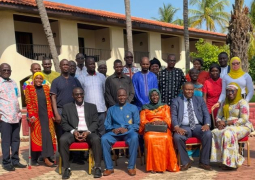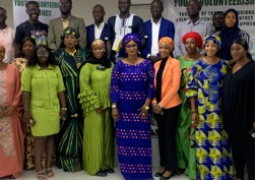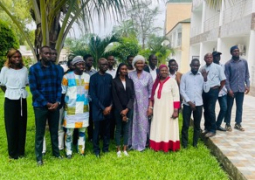
More so, the project will complement the Ministry’s drive to attain the target to increase in basic education gross enrolment rate (GER) 118% by 2030 including enrolment in Madrassas and an increase in completion rates in basic education to 100% by 2030 respectively.
Maimuna Sidibeh, while addressing National Assembly Members (NAMs), policymakers and education partners at a one-day consultation meeting held under the project – Leaving No One Behind in The Gambia: Improved Enrolment and Retention in Basic Education in Regions through Youths/Women Led Approach, maintained that the project is funded under UNESCO 2020-2021 participation programme and implemented by Gambia National Commission for UNESCO in collaboration with EFANet, MoBSE through the Regional Education Directorate 4, 5, and 6 respectively.
Ms. Sidibeh emphasised that the Constitution of The Gambia and policies of the Ministry of Basic and Secondary Education are geared towards the provision of basic and secondary education for Gambians, with focus on how to meet the current global education targets by 2030.
As the principal aim of the project is to complement the efforts of the MoBSE in boosting enrolment and eliminating of school dropout in the country especially in regions 4, 5 and 6, she therefore reminded partners and stakeholders in education that they are having barely less than 10 years to reach the timeline of the Agenda 2030 on SDG4: ‘ensure inclusive and equitable quality education and promote lifelong learning opportunities for all.’
“The indication for this should serve as a ringing bell to us as we transverse through the five years since the SDGs were launched,” she stated.
She added that now is the time to take stock on what has been done at country level towards the attainment of SDG4.
Further to that, she said the project will be done through series of sensitisation campaigns with policymakers as well as local communities in a bid to create a shift in the change of cultural and religious mindsets about sending children to school.
The Principal programme officer therefore expressed optimism that the National Commission for UNESCO consultation with the lawmakers, policymakers, partners and stakeholders in education will yield fruitful outcomes to the MoBSE’s campaign to realise its objectives of making education accessible and equitable to all Gambian children presently and future generations.





